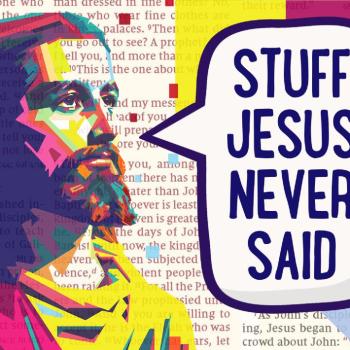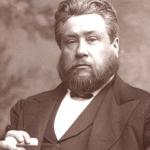O. Alan Noble, at CT, has a powerful response to our culture’s obsession — both pro and con and back and forth by both sides — with political correctness. Here is one section; go to the link to see the alternative.
In a few cases, political correctness has been openly advocated as a way to protect the vulnerable and promote justice, but for the most part, those particularly concerned with promoting particular speech codes don’t think of themselves as advocating “political correctness.” Instead, they recognize that the way we speak affects how we think and act, and that cultivating just and respectful language is a way of creating a more just and equitable society.
This assumes that language shapes reality, that how we talk about someone or something shapes how we understand them. For example, sometimes I tell my kids I love them because I am overcome with love for them, while other times I tell them I love them because I need to remind myself. Saying “I love you” helps me to love my kids, even when they are throwing a tantrum in the middle of the store.
If language shapes our world, then our words have a kind of coercive effect. The way I refer to you will affect how you perceive yourself. If this coercion is unavoidable, it’s only a matter of who is making the rules.
When those who are concerned with language insist upon the use of a non-offensive term, they are not undoing the coercive effects of language. They are coopting that coercion for their own ends—which is seemingly justified because it is a coercion against the prevailing power structures.
Because they assume that usurping power structures is the only good left to us, they feel justified in subverting prevailing power structures in this way. After all, if we are all going to be forced by language to see the world in certain ways, then the best thing we can do is be forced to see it in a fair way.
But a similar problem confronts many of those who protest “political correctness.” It is not that those opposed to political correctness don’t care about justice; it is that they believe that policing language creates more injustice by slipping into authoritarian abuse. But the anti-PC crusader who insists upon using an “offensive” term rather than the “politically correct one” is not undoing the effects of coercive language. They are also coopting that coercion for their own ends—which is seemingly justified because it is coercion in defense of freedom of speech.
This ideology of language which undergirds political correctness might never have taken root in modern society except for the parallel collapse of communally accepted moral norms and virtues that had generally governed speech. The move to a global community means we regularly interact with people who have drastically different beliefs about propriety, humility, tone, and word choice. Even within our local communities we are fractured into subcultures and share few morals, virtues, or authority structures with our neighbors. By globalizing our conversation and privatizing our beliefs, we’ve made it incredibly difficult to agree upon norms and virtues for speech. The most central of these lost virtues is charity. Through charity we have a strong foundation for disagreement and dialogue. Without it, we are left with discourse as competing forces of violence vying for power.














